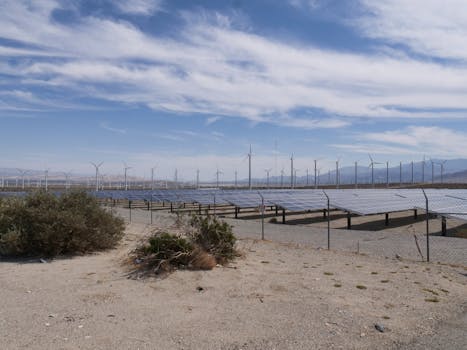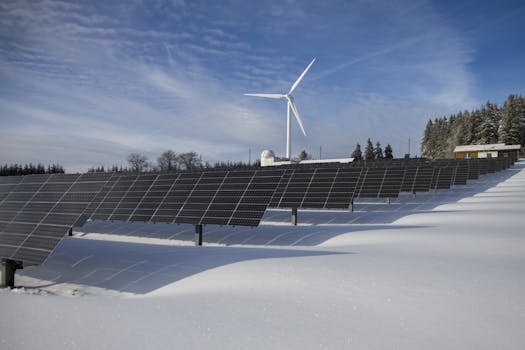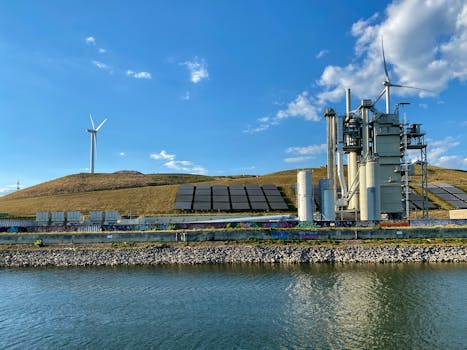
Introduction to Renewable Energy Breakthroughs

Breakthroughs in renewable energy technology are at the forefront of the global effort to achieve sustainability. As climate change accelerates and fossil fuel resources deplete, innovative solutions in energy generation are becoming essential. This article explores the latest advancements in renewable energy technology and their implications for a sustainable future.
Solar Power Innovations

Solar energy continues to evolve with several notable breakthroughs. The development of bifacial solar panels allows for energy capture from both sides of the panel, increasing efficiency. Additionally, perovskite solar cells have emerged as a game-changer, offering higher efficiencies at lower manufacturing costs. These innovations not only enhance energy output but also contribute to reducing the carbon footprint associated with energy production.
Wind Energy Advancements

Wind energy technology has also seen significant improvements. The introduction of larger turbines and floating wind farms enables energy generation in deeper waters where wind speeds are higher and more consistent. Furthermore, advancements in materials science have led to lighter, more durable blades, enhancing the overall efficiency and lifespan of wind turbines. These developments position wind energy as a key player in the transition to renewable energy.
Energy Storage Solutions

One of the critical challenges in renewable energy is energy storage. Recent breakthroughs in battery technology, particularly lithium-sulfur batteries, promise higher energy density and longer lifespan compared to traditional lithium-ion batteries. Innovations in flow batteries and solid-state batteries are also making strides, providing scalable and efficient storage solutions. These advancements ensure that renewable energy can be stored and used when needed, offsetting the intermittent nature of solar and wind energy.
Hydrogen Energy and Fuel Cells

Hydrogen energy is gaining traction as a clean energy source. Breakthroughs in hydrogen production, particularly green hydrogen generated from renewable sources, are paving the way for a sustainable energy future. Fuel cells powered by hydrogen offer an efficient alternative for transportation and power generation, significantly reducing greenhouse gas emissions. The integration of hydrogen technology with existing renewable systems presents a unique opportunity for sustainable energy ecosystems.
Conclusion

In conclusion, breakthroughs in renewable energy technology are crucial for achieving sustainability. Innovations in solar and wind energy, advancements in energy storage, and the emergence of hydrogen energy are transforming the energy landscape. As these technologies continue to develop, they hold the promise of a cleaner, more sustainable future, making it imperative for stakeholders to invest and support these advancements.





